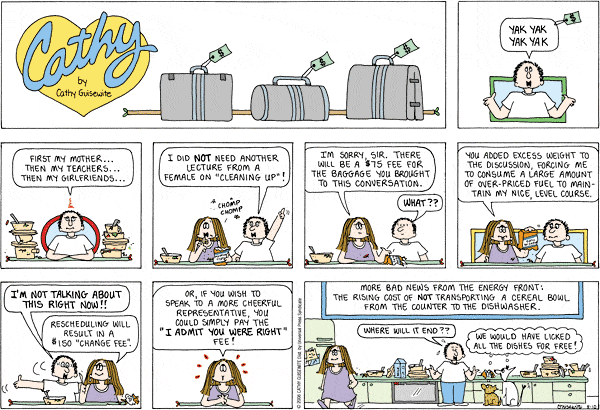Educational sky is falling says blithering windbag
Week after week the language-and-literacy pontificators fulminate in newspapers and magazines, nearly always revealing how little they know about language. The worst case I've seen in the past week is a column by Howard Jacobson in The Independent about how old teaching methods worked and new ones don't (muted thanks to Steve Jones for pointing it out to me). In the column he foams at the mouth over a contestant on a reality show who did not understand the meaning of the idiomatic phrase at your peril. Peril means "danger", of course but is somewhat archaic. Proceed at your peril means "If you proceed you will be in danger", but crucially, this is not compositional: the meaning does not follow from the regular principles for the rest of English phrase semantics. For example, you can't say ??Proceed at your trouble to mean "If you proceed you will be in trouble"; you can't say ??Proceed at your error to mean "If you proceed you will be in error". At your peril is a fixed phrase you have to learn as a whole. It is insane to whinge about the whole educational system going to the dogs just because one young person didn't know this single idiom. Everyone is ignorant of at least some of the abundantly many idiomatic phrases in English. And apart from that one phrase, Jacobson's complaints about education rest entirely on two things: a teacher named Phil Beadle used the transitive verb lay to mean "lie" ("be recumbent") in a TV program (see my disastrously unhelpful guidance on Language Log about this supposed shibboleth), and practice (rather than practise) was used as a verb in the program's closing credits (there's nothing wrong with it: dictionaries list it as a variant spelling, but Jacobson is too stupid or too over-confident to look at dictionaries). What a pathetic basis for apocalyptic claims about modern education. Read this linguistically ignorant blithering windbag at your peril.
